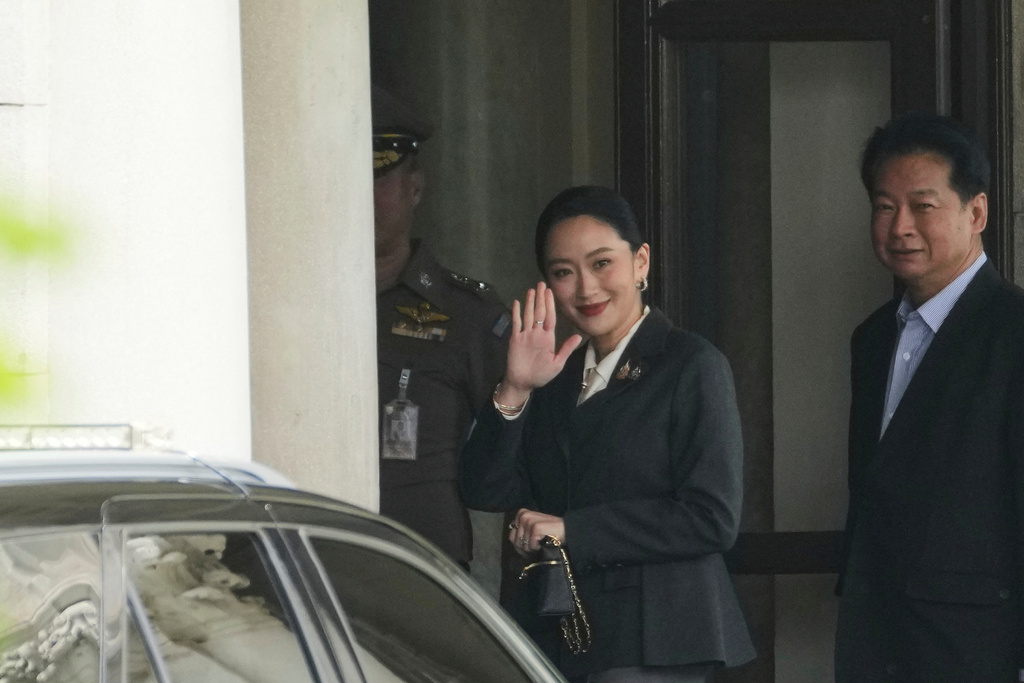Just over a year after it began, Paetongtarn Shinawatra’s premiership of Thailand has officially come to an end.
The Southeast Asian country’s Constitutional Court officially removed Paetongtarn, Asia’s youngest-ever non-monarchical female leader, as Prime Minister over a controversial call with Cambodia’s former leader, Hun Sen, during a flareup of a border dispute between the neighbors earlier this year that was found to have constituted ethics and integrity violations.
[time-brightcove not-tgx=”true”]
The court cited Paetongtarn being critical of a Thai Army commander during the call, saying it “demonstrated the weakness of domestic [Thai] politics,” and that Paetongtarn made a concession to Hun Sen without considering Thai “national security” to try and save her popularity, Thai news outlet Khaosod reported.
Thailand is no stranger to quick turnovers. Paetongtarn’s predecessor Srettha Thavisin was also removed by the Constitutional Court for an ethics violation last year, less than a year after he had taken office. Paetongtarn’s ousting had been in the cards for months, and she had already been suspended on July 1 pending the verdict in her case, which came Friday.
Paetongtarn’s family also has more familiarity with being booted than most. Her father Thaksin and aunt Yingluck were both former Prime Ministers who saw their tenures cut short in 2006 and 2014, respectively.
With Paetongtarn, the “last possible qualified” Shinawatra, now out of office, the powerful political dynasty may never regain the level of political dominance it once had, observers tell TIME.
“The Shinawatra brand has already suffered damage beyond repair,” says Napon Jatusripitak, a visiting fellow from ISEAS-Yusof Ishak Institute, told TIME. Their party, Pheu Thai, has so far failed to deliver on the populist economic agenda it promised when it came into power two years earlier after making a so-called “devil’s bargain” to partner with the conservative military- and monarchy-aligned establishment it once campaigned against in order to block the progressive Move Forward party, which won the most votes, from forming a government.
Paetongtarn’s suspension had already kickstarted a testy succession battle that will likely see new coalitions formed and potentially even a sooner-than-expected next general election.
Shinawatra’s losing battle for political power
Titipol Phakdeewanich, a political scientist at Ubon Ratchathani University, said that after the court ruled against Paetongtarn, he thinks it’s “impossible” for the Shinawatras to “make a comeback,” given the poor track record the family and its party has.
Support for Pheu Thai has plummeted from 28% to 11%, according to a June survey by the National Institute of Development Administration, while Paetongtarn’s approval rating slumped to the single digits.
The Shinawatras “are not actually connected with the sentiment of the country when there is not only a demand for economic well being, also demand for liberty and freedom, and this is what they refuse to touch on,” Titipol said.
Napon adds that the Shinawatra name “no longer carries the same ideological weight or policy legacy, and is now overshadowed by the controversy surrounding Paetongtarn’s recent diplomatic misstep, which has vindicated conservatives’ long-standing suspicions that the Shinawatras cannot be trusted to uphold national interests, while simultaneously amplifying broader public anxieties about Paetongtarn’s leadership qualifications, particularly in moments of national crisis.”
The Constitutional Court ruling on Paetongtarn was one of three major court cases facing the family—just last week, a court acquitted Thaksin of a royal defamation charge, an extraordinary reprieve for the dynasty given the rarity of acquittals for such cases. But Titipol says Thaksin could still be in trouble in his other legal battle. Thaksin returned to Thailand in 2023 after 15 years in exile when Pheu Thai returned to power, and while he was supposed to serve an eight-year prison term, instead he spent six months in a hospital suite, before he was freed on a royal pardon. The verdict, which is expected to come next month, could send him to jail if he’s deemed to have not served his time before he was paroled.
What comes next
But while a Shinawatra may no longer formally run the government of Thailand, Thaksin still commands the support of his Pheu Thai members, says Napon. And any future government coalition will still “very likely” require Pheu Thai’s support—with its 141 sitting members in the 500-member lower chamber of Parliament—at least until a new election happens.
Negotiations for a new coalition government could involve Pheu Thai retaining cabinet portfolios or, possibly, leniency in Thaksin’s prison enforcement case.
“The Shinawatra family will remain a key political player,” Napon says, “although its dominance is now a thing of the past.”

